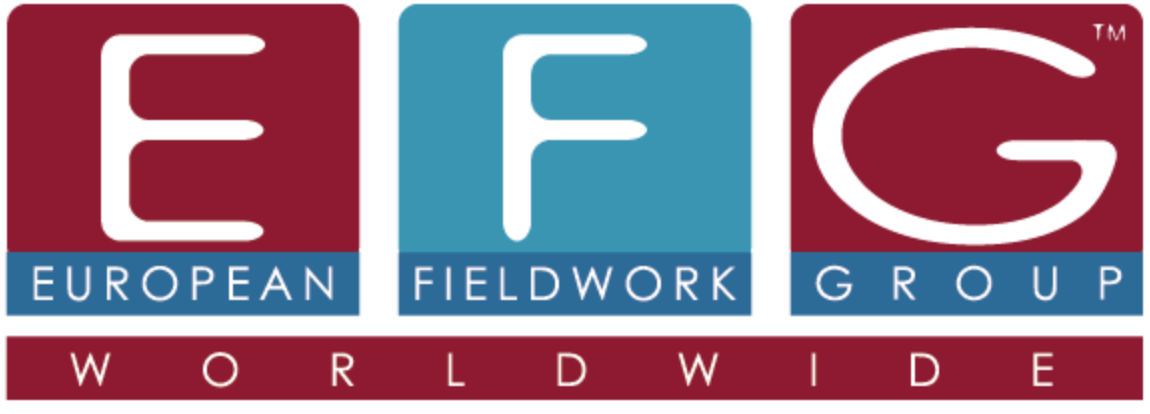RFL, Research Business Report – By Michael & Fernand Wiesenfeld
Market research firms in the United States face costly barriers when expanding internationally. Read how EFG efficiently and inexpensively knocked down global research barriers in this article from Research Business Report.
American MR agencies without international capabilities are at a serious competitive disadvantage if their clients are going global. Emerging markets in Asia and South America offer tasty expansion opportunities that can be cautiously explored. But the pressing requirement for American MR has been to get into Europe fast, which can be complicated and expensive – prohibitively so for small to mid-sized firms. Enter New York, NY based EFG Worldwide, the U.S. branch of EFG (European Fieldwork Group, Paris, France), which is efficiently, inexpensively and expertly knocking down imposing European research barriers for American MR firms.
U.S. MR firms serious about conducting research in Europe formerly had three basic options: outright expansion, acquisitions or partnering/outsourcing. Even with funding, the former rarely works because Europe has plenty of established, formidable research firms, plus there is the logistical challenge of maintaining foreign presences in multiple countries and acquiring the interna-tional expertise to properly execute projects on the Continent. The acquisition route is also, obviously, costly. Finally, partnering/ outsourcing introduces methodological concerns and eats up already slim margins (unless the research assigner and research conductor both mark up the project, which can mean loss of the job). EFG says it offers a way around all of those problems.
EFG, whose U.S. office opened in 2001 coordinate and manage MR projects throughout the world, with aout 35% of its overall business in Europe where they have been established ever since 1975. It is exclusively dedicated to fieldwork, offering the full range of qualitative and quantitative capabilities: phone work, CAPI, Internet surveys (somewhat less prevalent in Europe), focus groups, mystery shopping, etc. EFG Worldwide’s privately-held owner, MV2, has more than 40 years of global experience, 135 fulltime employees and about $67 million in revenues last year. MV2 ranks among France’s top 3 full-service MR firms, are part of the Honomichl top 25 global research firms.
Fernand Wiesenfeld, Partner and Principal for both companies, reports the U.S. EFG operation (managed by his son, Michael) is on plan, profitable and growing – even in the face of the American MR market’s. The reason is EFG’s unique niche. EFG expects to double its business this year in part thanks ot its groving business with Innovation firms and large advertising agencies conducting their own primary MR. “I don’t know of any companies in the U.S. selling the capability to conduct fieldwork in over 70 countries across methodologies,” he told RBR. “U.S. companies previously went through UK firms, which subcontract throughout Europe, but they’ve become very expensive, even though the British Pound went down since the the Brexit. We’ve found that every time we bid against them, we have a price edge.”
EFG sub-contracts, too, but with a significant advantage thanks to MV2, explained Wiesenfeld. “Outside of France, 95% of our work is sub-contracted to two or three partners within each European country because it’s rare to find one company that does everything. Many have been MV2 partners for 20 or 30 years,” he noted. “These partnerships set common, homogeneous procedures internationally and rein in costs. We understand our clients’ need for room for their mark-ups.”
When EFG initially launched in the U.S., business was expected to come from small- to mid-sized MR firms just dipping their toes in international MR. That has come to pass (two-thirds of EFG’s client base), but there has been unexpected work from some very large Market Research agencies with existing internal international resources and capabilities. “It’s been a matter of pricing, coordination of services, or timing and schedules,” Wiesenfeld elaborated. “Our service proved better than what they could get internally, even though most of these companies have offices in each of the European countries involved in the research.” Two of the large firms became defacto partners after using EFG. “Recently, we spent a day at one’s headquarters, training their sales team about differences between countries like China, Brazil, France and Germany and so on, so that they could sell better to their own clients,” he disclosed.
Other reported EFG advantages are the company’s recommendations for fields projects based on decades of global experience. “American companies frequently come to us with a method that may not be ideal for a particular country or target, and we advise them on alternatives to best suit their needs,” he detailed. “That advice proves quite valuable because they can then return to their own clients with some very knowledgeable, sound recommendations.”
EFG operates throughout the world with about 35% of the projects in Europe, 25% in Asia/Pacific, 25% in the Americas and 15% in Middle East and Africa.
While the globalization has increased the flow of business and proximity between all of these countries, there are cultural differences that need to be taken into account and that’s where EFG also adds value.
“In the UK, focus groups can be done in private homes for instance. In southern European countries, they can last hours longer than in say, Germany, because the people tend to speak more,” noted Wiesenfeld. “The lengthier the group, the more potential solutions.” Privacy sensitivities, too, vary by country. Germany is especially rigid. “Due to their concerns about confidentiality, you can’t have contact lists. You must start from scratch every time with fresh, ad hoc sampling,” he shared. Pricing also fluctuates geographically; Sweden and Switzerland are especially costly. Perhaps the most underestimated area of difference, contends Wiesenfeld, is linguistic. “Questionnaire translation is not like translating a book,” he emphasized. “There is wording and grammar and the technique of asking questions. Asking a question in America versus Spain versus France is not exactly the same.”

